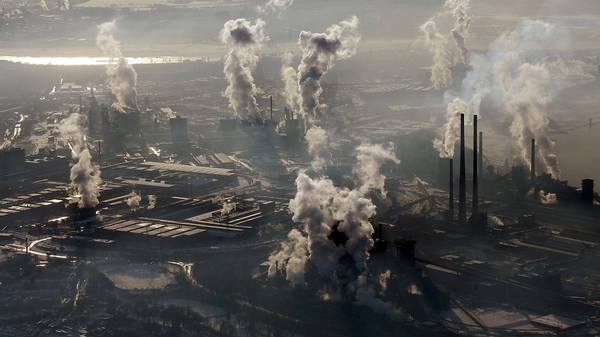Goo
 Twenty years ago, in 2003, our new and glorious King warned us of the potential of a ‘grey goo’ catastrophe, from new technological and social developments running out of control and devouring the planet.
Twenty years ago, in 2003, our new and glorious King warned us of the potential of a ‘grey goo’ catastrophe, from new technological and social developments running out of control and devouring the planet.
How right he was.
The modern period has been characterised by massive structures. Physical, economic, and social structures. There were the massive engineering projects of the advancing capitalist age, building railways, dams, factories, and megastructures, finally outshining the Egyptians and their pyramids. Then the great power blocs of Entente, Alliance, and Axis, fielding armies that finally surpassed those of Alexander and Genghis Khan, and ending with the stasis of NATO versus the Soviet Union, where the whole world was threatened with annihilation from a general nuclear exchange. And socially there has been the erection of Democracy, as a temple of classless worship, an ever-expanding sphere where the rich and the indigent supposedly had the same access: the same access to information with the BBC, and press regulation: the same access to physical citizenship via palliatives and doles, above all the NHS; to education via free schools and university tuition even for the working class; political equality via the franchise, regulated by the Electoral Commission. Over all this stood a civil service that was no respecter of persons, administering the whole system, and a broad political consensus between all political parties and classes that this was a Good Thing and should continue.
Respectable working class
One of the most important structures resulting from this was the respectable working class. A class with reforming, not radical chains, that voted Labour but looked down on subversive ideas. The class that fought for a fair day’s wage, not the abolition of the wages system, that traded its birthright for a mess of pottage consisting of an 8-hour working day, a manageable mortgage, and pensioned retirement.
The other blocs also had their different systems, and similar social contracts, explicit or implicit, as to the relationship of worker to capital, and of capital to the state. While each bloc would berate the others as to their barbarity, in practice within the limits of available wealth and level of development their structures were remarkably similar. Free market, mixed, or state capital were points on a scale.
Now of course what is order for the spider is chaos for the fly. Those outside of the blocs, or who fell through the gaps of the system, were fair game. A corporation could outflank a minimum wage and other controls by setting up shop in the global South, or by employing transient labour, or underpaying women (stamping out child labour, within the state’s confines, was a universal boast). Imperialism abroad became neo-imperialism, its victims now crushed under debt rather than the boot heel. All’s fair, and you can work yourself out of poverty. Supposedly.
It was in Britain that all this first fell. New class war economic experiments, first tried out in post-coup Chile, were brought to these shores by an insurgent Conservative government in 1979. A convenient military victory provided the political capital for a triumphant second election, while a manifesto to swing the pendulum in the other direction was described as ‘the longest suicide note in history’. Across the 1980s, while the rest of what was rather optimistically called civilisation continued its sclerotic social compromise, the moles burrowed under, waging war at all points at home and abroad with no purpose but chaos that would fell the existing order, bringing more profit to capital and thus less to labour, while destroying the international order and baring the Soviet’s throats to their gnawing teeth. In the decades since the fall of the Soviets, their tunnelling has borne fruit, and structure after structure has come crashing down.
This is the grey goo that we were warned about. Describing it as an intelligent system is something of a reach: it is entirely instinctive, yet assimilates an entire society, destroying its existing systems, and turns it into a formless slurry that can be consumed for a profit. The career and pension is a distant dream, as is housing or even feeding your children. Voting is under attack at the polls, but far more importantly the recent campaign to define almost any and all social democracy as antisemitic has turned the BBC, the media bulwark against the billionaire media barons, into a firehose of servile bullshit.
There is no democracy without debate. Education standards are now those of the psychotic billionaire hobbyists who purchase academies. Our foreign policy is no longer part of the NATO structure, with a legacy of Empire structure, but chasing the Americans’ heels to hear their commands of the day, in the new US-UKA ‘alliance’. And the social fabric of imperialism has broken down: where the city was supposed to shower its brutal trading wealth onto the country from above, as a substitute for native manufactures, now the Square Mile acts as a jet engine firing the misery of billions towards the bank accounts of hedge-fund billionaires at supersonic speeds, bypassing the North which is scheduled for managed demolition. And recently of course we had the ultimate political Punch and Judy show, of the Truss ‘administration’, along with the first budget to open with the line ‘Everybody be cool, this is a robbery’. A man who seemed to be wholly owned by Crispin Odey, a currency speculator, wrote a budget that put billions in the pockets of the likes of Crispin Odey through currency and bond market speculation, while we all suffer, and no-one can talk about it because the first structure to be dissolved was our own backbones. As someone once said, the British are finally going to find out how it feels to be ruled by the British.
Reasons to be cheerful?
As Ash from Alien might say to the working class facing this onslaught, ‘You have my sympathies’. But from a revolutionary perspective there are possibilities. The problem is, the Western working class had succumbed to victory disease. The social contract was the social stasis, that stopped anything from moving. Workers had systems, such as (but not only) unions, to maintain their position as a class of capital, rather than being a revolutionary class. Their chains were reformist chains, and a fair day’s pay for a fair day’s work seemed a logical demand for the working class, and they rightly looked askance at the dangerous nutters that wanted to pull it all down. At the same time the capitalists of various persuasions were locked into sclerotic and inefficient systems that gave them an average rate of profit and kept them from the guillotine, and they could at least take pride in the empire-building nature of their enlightened taxes.
But now this is going. Out with a working class who do not directly own capital but do have rights and privileges, pensions funded on the stock market, are consulted, are offered routes out of their class however tenuous and individual, in short are a class of capital. Their party is the Labour Party, as subordinate and loyal partners of the manufacturers in their battle against landowners and financiers, and those members of the working class who drifted further leftwards so often had reasons other than their class position, whether personal, quixotic, hobbyist, or just falling through the cracks. Through the classic period of capital, revolutionary politics has not, arguably, been economic but millenarian and historical class politics. But now that working class is becoming a memory. The revolutionary proletariat is not just about the people who work. The proletariat is not a class so much as the dissolution of all classes: and workers are, in these last days of capital, once again proletarian. In times of madness, the nutters are finally the voice of sanity they should always have been.
Lenin asked, ‘What is to be done?’ – this is the question posed by the vanguard of the organised working class in capitalism. It is a question that demands order, an end to the chaos, the fly trying to take over the spider’s web or at the very least come to a modus vivendi with the spider. And it is a cry that has socialism of a particular kind as its object, the ‘socialism’ of increasing wages and regulated working days and pensions and swimming pools.
The cry of the proletariat, the dissolution of all classes, is different. Its cry is ‘I am nothing and should be everything!’ As Durruti said:
‘We have always lived in slums and holes in the wall. We will know how to accommodate ourselves for a while. For you must not forget that we can also build. It is we who built these palaces and cities, here in Spain and America and everywhere. We, the workers. We can build others to take their place. And better ones. We are not in the least afraid of ruins. We are going to inherit the earth; there is not the slightest doubt about that. The bourgeoisie might blast and ruin its own world before it leaves the stage of history. We carry a new world here, in our hearts. That world is growing in this minute.’
 A world of goo is the legacy of Capital, as the fabled scorpion that stung the frog mid-river, not due to its advantage but due to its nature. It is a world that the established working class must fear, and is warned against. But it is a world that the proletariat can rule without any instruction from a vanguard or obedience to an overseer, every step better than their last, and a world so debased that no treasured structures need to be preserved. As even the American bulwark falters into farce, a ringmaster lashing out at the lions that have seen their military failure and now are coming to see them less as tormentor and more as meat, threatening world nuclear war to obscure the corruption on a single corrupt scion’s laptop but more just to seek oblivion over their inevitable decomposition: the international nature of the working class starts to make more practical, rather than oratorial, sense.
A world of goo is the legacy of Capital, as the fabled scorpion that stung the frog mid-river, not due to its advantage but due to its nature. It is a world that the established working class must fear, and is warned against. But it is a world that the proletariat can rule without any instruction from a vanguard or obedience to an overseer, every step better than their last, and a world so debased that no treasured structures need to be preserved. As even the American bulwark falters into farce, a ringmaster lashing out at the lions that have seen their military failure and now are coming to see them less as tormentor and more as meat, threatening world nuclear war to obscure the corruption on a single corrupt scion’s laptop but more just to seek oblivion over their inevitable decomposition: the international nature of the working class starts to make more practical, rather than oratorial, sense.
A world of ruins, not just of the physical but the political, the religious, the economic, where all that is solid melts into air, is a world where the proletariat can survive and flourish but the bourgeois worker cannot: to survive collapse, to survive shame, and prosper, you must become a cockroach, and the prideful cannot make the transition. A world of goo is a world of possibilities, but the working class must first go under the yoke of shame; fortunately, our capitalists are lashing us in that direction. But then, in some ways capitalists have always been the better Marxists.
HOBGOBLIN
